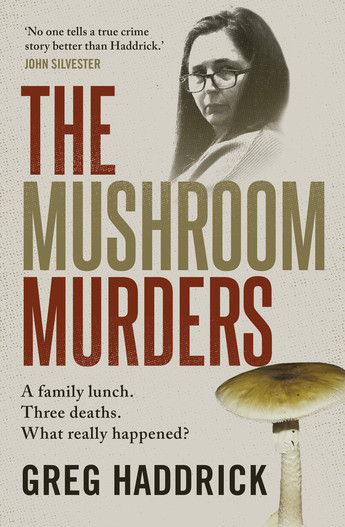Non Fiction
Righting My World: Essays from the past half-century by Dennis Altman
There is a video clip somewhere of Dennis Altman on the ABC’s Monday Conference program, a forerunner to the late (and unlamented) Q+A. The year is 1972 and Altman is defending his book Homosexual (1971) against a Methodist minister whose name escapes me and the conservative politician and journalist Peter Coleman. The minister is the more strident of the two, suggesting that homosexuality is the consequence of disordered sexual development and citing some specious research to that effect. Coleman takes a more nuanced line. One of the best things about the book, he suggests, is that it confirms one of the right’s main objections to ‘gay lib’: the movement, he says, is aimed as much at the transformation of society as it is at the liberation of gays. Smiling slightly mischievously, Altman is more than happy to agree.
... (read more)Zadie Smith’s essay collections have an uncanny habit of arriving precisely when the culture shifts. Changing My Mind (2009) appeared as the iPhone began transforming daily life; Feel Free (2018) followed Donald Trump’s first inauguration; Intimations (2020) captured the disorientation of the pandemic’s early months; and now Dead and Alive appears in the wake of Trump’s return to office. Comprising essays written between 2016 and 2025, most of them first published elsewhere, the collection gains an unexpected coherence in retrospect.
... (read more)The Mushroom Murders by Greg Haddrick & Recipe for Murder by Duncan McNab
I learnt about the Erin Patterson verdict from Allen & Unwin. They broke the news with a PR blast for Greg Haddrick’s The Mushroom Murders: ‘A family lunch. Three deaths. What really happened?’ (a tagline designed to fit any outcome). I checked the timestamps. The jury had been discharged from the Morwell courthouse at 2:28 pm; the marketing email landed in my inbox at 3:28 pm. It takes longer to wrap and roast a beef wellington.
... (read more)This week, on The ABR Podcast, James Curran reviews Turbulence: Australian foreign policy in the Trump era by Clinton Fernandes.
... (read more)The Best Australian Science Writing 2025 by Zoe Kean and Tegan Taylor
This week on the ABR Podcast, Grace Roodenrys reviews KONTRA by Eunice Andrada, observing that the collection draws on a poetics of cultural excavation.
... (read more)Amanda Lohrey
My novel of the year is Italian writer Vincenzo Latronico’s Perfection (Text Publishing), a slyly political novel about a cool young couple in Berlin whose good intentions are undermined by neo-liberalism’s pet child, a rootless cosmopolitanism. I once shared an office with the poet Dorothy Porter and it was an experience. Porter died in 2008 at the age of fifty-four and in Gutsy Girls (University of Queensland Press) her sister Josie McSkimming crafts an affecting portrait of the poet and the resistance of both sisters to their volatile father. Beautifully written and with some of Porter’s best poetry woven throughout the text. Joan Didion’s Notes to John (Fourth Estate) is perhaps the ultimate in literary voyeurism, a diary of Didion’s sessions with her psychiatrist, published after her death. Didion’s therapist is an intriguing character in his own right.
... (read more)Erased: A history of international thought without men by Patricia Owens
The Australian philosopher Michelle Boulous Walker – writing in Philosophy and the Maternal Body: Reading silence (1998) – argued that making sense of the exclusion of women from Western philosophy required thinking beyond a ‘spatial logic of “inside” and “outside”’; the marginalisation of women’s voices ‘needs to be understood as something more than a simple exclusion’. In the case of institutional philosophy, at least, this is because there are logics found within it that work to silence women.
... (read more)Walter Lippmann: An intellectual biography by Tom Arnold-Forster
Walter Lippmann might be the defining example of a public intellectual. He profoundly influenced public and political debate in America during the twentieth century. A prolific journalist and columnist, he also published ten major books and even more edited collections and compilations. The best of these were thought-provoking disquisitions on public opinion, communications, politics, international relations, and the ways in which liberal thought has developed in the United States. His was, argues Tom Arnold-Forster, ‘a six-decade commentary on the vicissitudes of politics’.
... (read more)The World at First Light: A new history of the Renaissance by Bernd Roeck, translated from German by Patrick Baker
A few years ago, conservatives in Australia supported a push to get courses on Western Civilisation into universities, with generous funding from the Ramsay Foundation. They wished to combat what they saw as an overemphasis on the evils of colonialism and postcolonial exploitation and to reinstate a history proclaiming the benefits of European culture. At first glance, Roeck’s book matches this agenda. It retells, in updated form, the grand narrative of a sublime ancient Greek culture – described as ‘an unparalleled achievement of the human mind’ – transmitted by the Romans, then rediscovered and enhanced by the Renaissance, that ultimately brought the benefits of democracy and European science to the world. Its heroes (the word recurs repeatedly) are male thinkers, artists, and inventors, and its ‘modernity’ is exclusively European.
... (read more)









